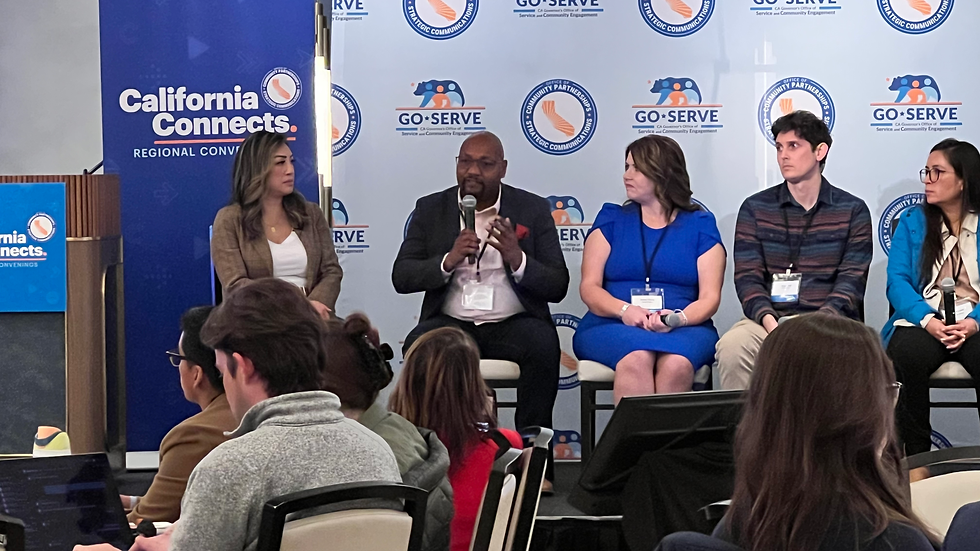Congressman Costa votes for Coronavirus Aid-CARES Act, supporting the bipartisan effort
- The ONME Newswire

- Mar 27, 2020
- 3 min read

After House passage of H.R.748 – The Coronavirus Aid, Relief, and Economic Security (CARES) Act, which will provide $2 trillion of relief to critical industries, small business owners, and American families, Congressman Jim Costa (CA-16) sought relief for millions of Central Valley residents, farmers, workers and small business owners through a bipartisan effort. "With this third bipartisan bill, Congress has shown it can come together to deal with a health care crisis the likes of which we have never seen before,” said Costa.
“This legislation gives additional resources to combat this virus and provide relief to small business, workers, schools, students and farmers, among others.
We will continue to find solutions to take care of American’s health and safety, and to get our economy back on track.”
The bill includes crucial funding and relief:
For fighting the coronavirus - $150 billion for health equipment, infrastructure, and medical research to give our healthcare professionals the resources they desperately need during this emergency.
$100 billion for a new program to provide grants to hospitals, public entities, not-for-profit entities, and Medicare and Medicaid enrolled suppliers and institutional providers to cover health care related expenses resulting from the coronavirus.
$27 billion for the Public Health and Social Services Emergency Fund
$1.3 billion for Community Health Centers for COVID testing and treatment and an increase of over $2 billion for Community Health Centers for general services in 2020.
$1 billion for the Defense Production Act to bolster domestic supply chains, enabling industry to quickly ramp up production of personal protective equipment, ventilators, and other urgently needed medical supplies.
For workers - $260 billion in Unemployment Insurance benefits to match the average paycheck of laid-off or furloughed workers.
Pandemic Unemployment Assistance for self-employed workers and contractors who are not eligible for regular unemployment benefits.
For our small businesses - $377 billion in grants and loan payment relief, including making rent, mortgage and utility costs eligible for SBA loan forgiveness.
Relief for small business owners, including self-employed individuals and independent contractors through the Paycheck Protection Program.
For students - $30.75 billion in emergency education funding and eliminated income tax on student loan repayment assistance by an employer.
For rural communities - $100 million for the construction and equipment necessary to increase rural broadband access and telehealth opportunities, as well as $250 million for Certified Community Behavioral Health Clinics.
For farmers - $40 billion in emergency food and farm aid to support our vulnerable communities and our essential agricultural workers who feed America.
$450 million for food banks (Emergency Food Assistance Program).
The CARES Act is the third bipartisan effort to respond to the Coronavirus health and economic crisis. Since the outbreak, Congress has passed, and the President has signed, two additional bipartisan bills, H.R.6201 - Families First Coronavirus Response Act and H.R.6074 - Coronavirus Preparedness and Response Supplemental Appropriations Act, which provided:
Free coronavirus testing for everyone who needs a test, including the uninsured.
Paid emergency leave, with both 14 days of paid sick leave and up to three months of paid family and medical leave.
Enhanced Unemployment Insurance, a first step that will extend protections to furloughed workers.
Strengthened food security initiatives, including SNAP, student meals, seniors’ nutrition and food banks.
Increased federal funds for Medicaid, as states face increased costs.
$3.2 billion to bolster prevention, preparedness, and response efforts.
$950 million to support state and local health agencies.
Nearly $1 billion to procure medicine and supplies for Community Health Centers.
$3 billion for vaccine and treatment development.
"This health care crisis is entirely without precedent," Costa continued. "In the weeks and months to come, Congress and this administration will be called upon to address further challenges with bipartisan solutions. As your Congressman, I want you to know we will continue to work together to help the people of our valley and throughout our nation during these difficult times."








Comments